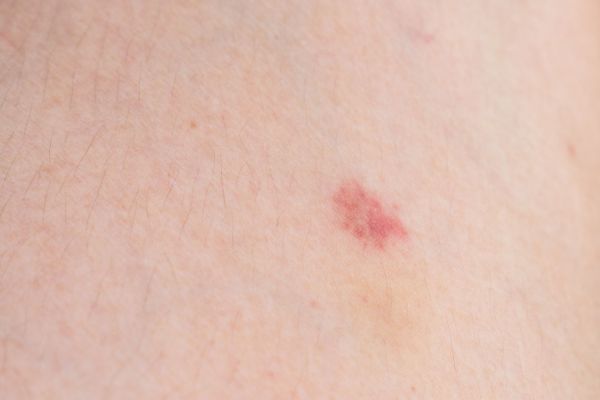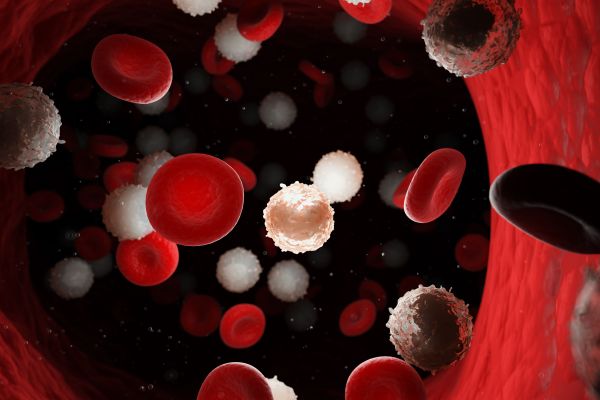An unexplained, mysterious bruise that can’t be tied back to a fall or other injury might make your brain race: Is this cancer?
Bruising occurs when blood collects under the skin after the delicate vessels that circulate blood are damaged or broken, explains Eunice Wang, MD, a hematologist and Chief of the Leukemia/Benign Hematology Service at Roswell Park Comprehensive Cancer Center. A bruise is typically flat and will appear reddish or bluish in color at first — red if the blood is oxygenated and coming from the lungs, blue if it is transporting carbon dioxide back to the lungs to be exhaled — but will change color to yellow, brown or purple as those cells die off and are absorbed back into the body.
Any trauma that is strong enough to break the blood vessels but not enough to break the skin can result in a bruise, but taking blood thinners or too much aspirin can also cause bruising, Dr. Wang says. Sometimes bruising is caused by an imbalance in the body’s bleeding/clotting system due to too many, or not enough, platelets in the bloodstream. Platelets, like red and white blood cells, are formed in the bone marrow and are important in making blood clot. Too many platelets can cause blood clots, which can result in heart attack, stroke and other problems. Too few platelets and people might bleed excessively when injured, Dr. Wang says.
But bruising, or excessive platelets, might also be an indication that your blood cells are carrying leukemia cells as well, which can grow in the bone marrow alongside healthy cells. These bruises are different from the ones we’re used to seeing: they might be much darker red or purple and could be irregularly shaped. Bruises that could indicate cancer might also appear on parts of the body where bruises wouldn’t normally occur, like on the head, face, thighs or back, Dr. Wang says. They will last longer and could appear to spread or multiply or, in the case of a condition called petechiae, it could look like tiny red freckles coupled with small bruises.
Bruising might indicate a medicine imbalance
If you notice excessive and unexplained bruising in an area of your body that you don’t remember injuring, especially if you also feel excessively tired, have lost weight unexpectedly, have shortness of breath or notice blood in your urine, stool or when brushing your teeth, it’s time to call a doctor, Dr. Wang says.
“The first thing your primary care provider will ask is whether you’re on any medication, like a blood thinner or if you take aspirin, and they will probably order a complete blood cell count and possibly additional blood work to look at your bleeding/clotting ratio to see what might be wrong,” she says. “If there are abnormalities in the blood system or the bleeding/clotting ratio, they may send you to a hematologist to see if there’s a reason for the excessive bruising.”
Never miss another Cancer Talk blog!
Sign up to receive our weekly Cancer Talk e-newsletter.
Sign up!Cancer cells circulating in the blood can throw off the bleeding/clotting ratio causing excessive bruising or other bleeding problems, Dr. Wang says. “That’s why it’s important to get bloodwork done to get things checked out. If you have a normal platelet count, normal white blood cell count and your blood test is normal, it could be you just had extra trauma without realizing it, or you could have taken too much aspirin. If you’re on a blood thinner, you might need to decrease the dose.”
If too much aspirin or too strong a dose of a blood thinner is found to be the culprit, adjusting the dose will likely cause the unexplained bruises to clear up. The only way to know for sure what’s causing excessive bruising is to get bloodwork done and talk with your doctor about the results, Dr. Wang says.




